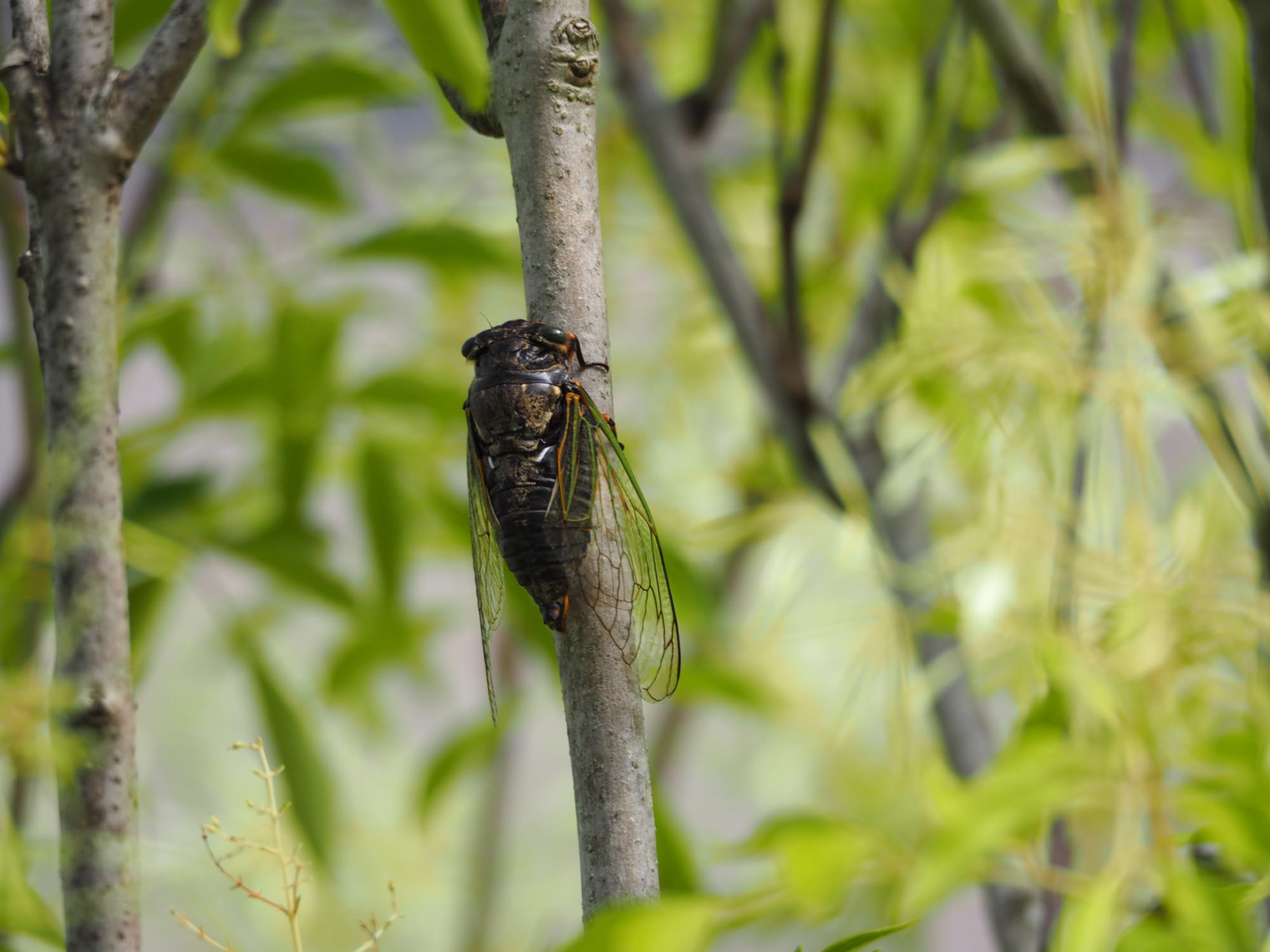Residents of southwestern Virginia and beyond will soon begin to hear the buzz of cicada wings as the insects known as Brood IX begin emerging from the ground in early May to mate. This brood of periodical cicadas have spent the past 17 years underground, feeding on the nutrients from wooded plants in the soil.
While most people are familiar with annual cicadas that make an appearance every year near the end of summer, the 17-year Brood IX arrives in tremendous numbers, swarming trees and dive-bombing people as they mind their own business outside. Dogs love them– they make a delicious, crunchy snack.
Though they’ve spent the last 17 years maturing underground, Brood IX cicadas live only 4-6 weeks above ground. Their purpose is to mate—that loud, buzzing sound you hear is produced by adult males to attract females.
In order for the insects to emerge, soil temperatures about 6-10 inches below the ground need to reach approximately 65 degrees. When that happens, the bugs will arrive in parts of North Carolina, Southwest Virginia and West Virginia.
It’s important to note that while many people consider cicadas a nuisance, they play an important role in the ecosystem. They don’t bite or sting and they feed only on tree sap. They do have the potential to damage newly planted fruit, ornamental and hardwood trees because female cicadas lay their eggs on small branches and twigs, causing them to snap. Established trees should fair just fine during the weeks the six-legged, bug-eyed creatures call them home.
Photo from Getty Images








